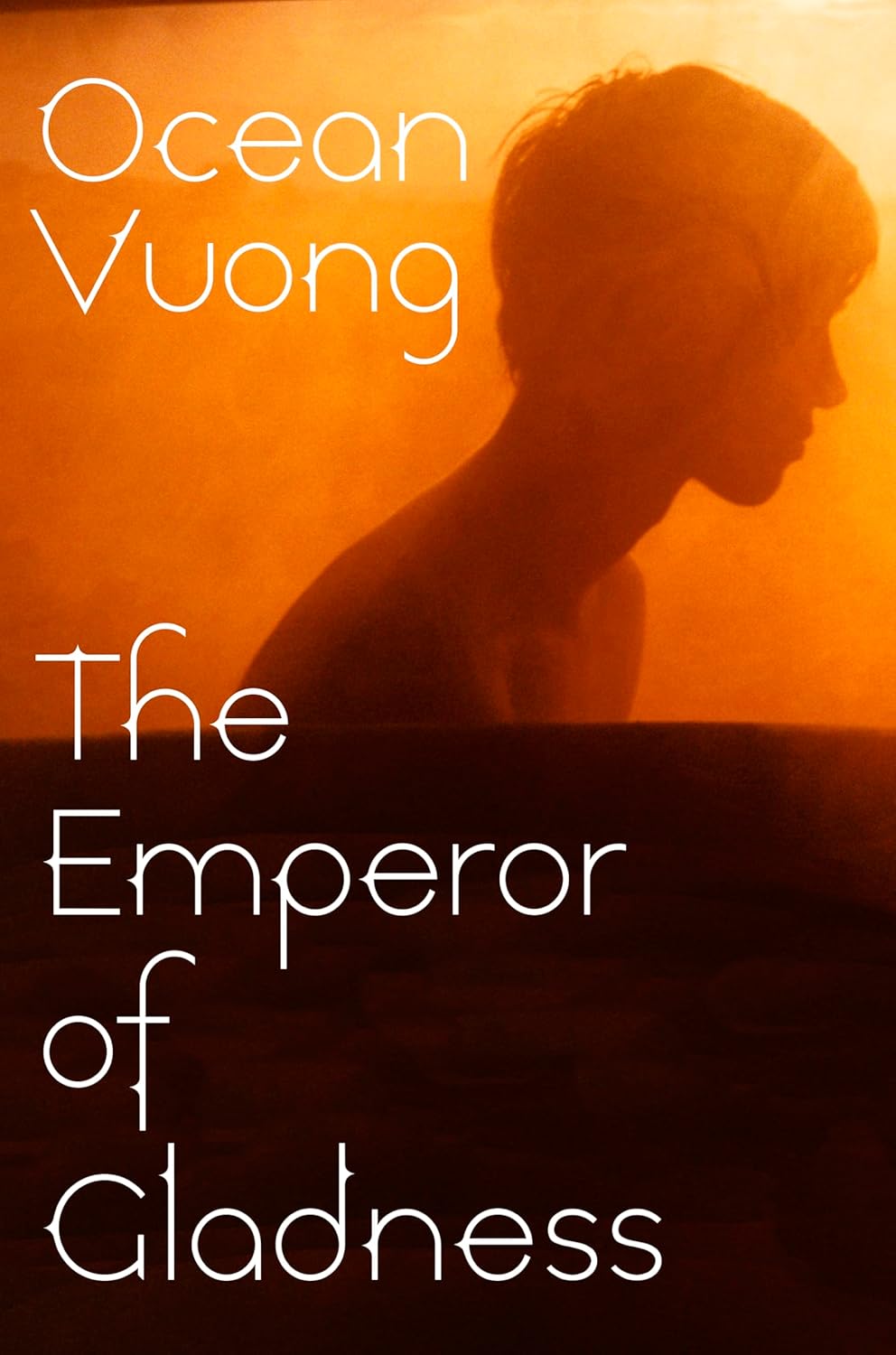Book Summary
Ocean Vuong’s sophomore novel, The Emperor of Gladness, opens with 19-year-old Hai standing on a bridge in the decaying post-industrial town of East Gladness, Connecticut, ready to jump. His suicide attempt is interrupted by Grazina, an 82-year-old Lithuanian widow with dementia, who shouts across the river and pulls him into her orbit. What follows is an unlikely bond between two fractured souls: Hai, a Vietnamese American college dropout battling addiction and estrangement from his mother, and Grazina, a woman haunted by memories of war and displacement. As Hai becomes her live-in caretaker and takes a job at the local fast-food chain HomeMarket, the novel unfolds as a lyrical exploration of survival in the margins of America .
Vuong’s prose is both tender and unflinching, weaving together themes of labor, memory, and intergenerational trauma. The novel’s brilliance lies in its ability to balance despair with moments of dark humor and unexpected grace. Through Hai’s relationships—with Grazina, his eccentric coworkers, and his absent mother—Vuong paints a portrait of a community clinging to hope amid systemic neglect. Critics have hailed it as a “quiet marvel” and a “brave epic” that redefines the contemporary American experience .
Key Themes
Found Family and Precarious Labor: At its core, The Emperor of Gladness is about the families we choose and the ones forced upon us by circumstance. Hai’s makeshift kinship with Grazina and his HomeMarket coworkers—a motley crew including a wannabe pro-wrestler manager and a conspiracy-theorist cashier—highlights the resilience of marginalized communities. Vuong’s depiction of fast-food labor is particularly searing, exposing the absurdity and exploitation of late-stage capitalism while celebrating the dignity of workers .
Memory and War’s Long Shadow: Grazina’s dementia becomes a metaphor for the unreliability of history, as she oscillates between present-day Connecticut and her traumatic past in wartime Lithuania. Meanwhile, Hai grapples with his own inherited trauma as the son of Vietnamese refugees. Vuong draws parallels between these displacements, suggesting that America’s working-class towns are themselves battlefields, scarred by economic violence .
What Makes It Unique
Lyrical Realism: Vuong, a celebrated poet, infuses his prose with poetic density. Descriptions of East Gladness—its “school buses in various stages of amnesia,” the “warm sodium of a Salisbury steak”—elevate the mundane into the mythic. Yet unlike his debut novel, On Earth We’re Briefly Gorgeous, this book embraces conventional narrative structure, offering a more accessible entry point to his work .
Humor Amid Despair: The novel’s greatest surprise is its wit. Grazina’s sharp one-liners (“Are you my mom yet?”) and the HomeMarket crew’s absurd antics (like a disastrous trip to a slaughterhouse) provide levity without undercutting the story’s gravity. This balance reflects Vuong’s thesis: that joy and sorrow are inseparable companions .
Reader Reactions
Early reviews praise the novel’s emotional depth, with many calling it Vuong’s “best work yet.” Oprah Winfrey selected it for her book club, noting its “heartfelt and powerful examination of those living on the fringes.” Readers on Goodreads describe it as “crackling with life” and “the kind of book that lingers in your bones” .
Some critics argue the plot’s reliance on coincidence—like Grazina spotting Hai at the exact right moment—strains believability. Others find the HomeMarket sections overly nostalgic for those unfamiliar with service work. Yet even these critiques acknowledge the novel’s ambition and heart .
About the Author
Ocean Vuong is a MacArthur “Genius Grant” recipient and the author of the bestselling novel On Earth We’re Briefly Gorgeous and the poetry collection Night Sky with Exit Wounds. Born in Saigon and raised in Hartford, Connecticut, he draws from his experiences as a refugee, fast-food worker, and nursing home volunteer to inform his writing. The Emperor of Gladness is dedicated to the real-life Grazina who shaped his youth .
Vuong’s work consistently explores themes of queerness, migration, and linguistic hybridity. Here, he expands his focus to class struggle, citing influences like John Steinbeck and Virginia Woolf. His ability to merge the epic with the intimate has cemented his status as a defining voice of his generation .
Memorable Quotes
“To be alive, and try to be a decent person, and not turn it into anything big or grand, that’s the hardest thing of all.” —Grazina, reflecting on survival’s quiet heroism .
“At HomeMarket, ‘made by hand’ meant heating up the contents of a bag of mushy food cooked nearly a year ago in a laboratory outside Des Moines.” —Hai’s wry observation on labor’s illusions .
